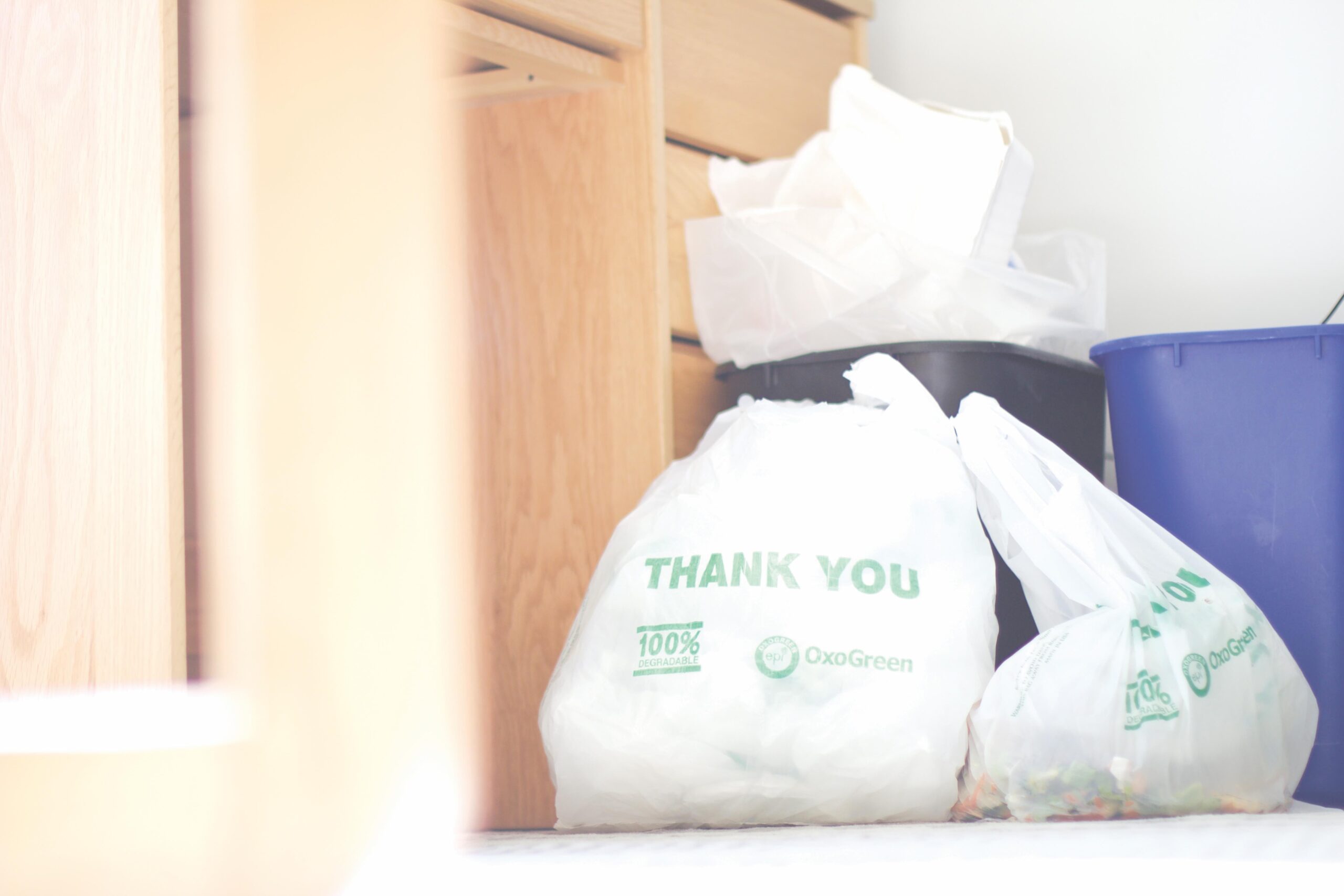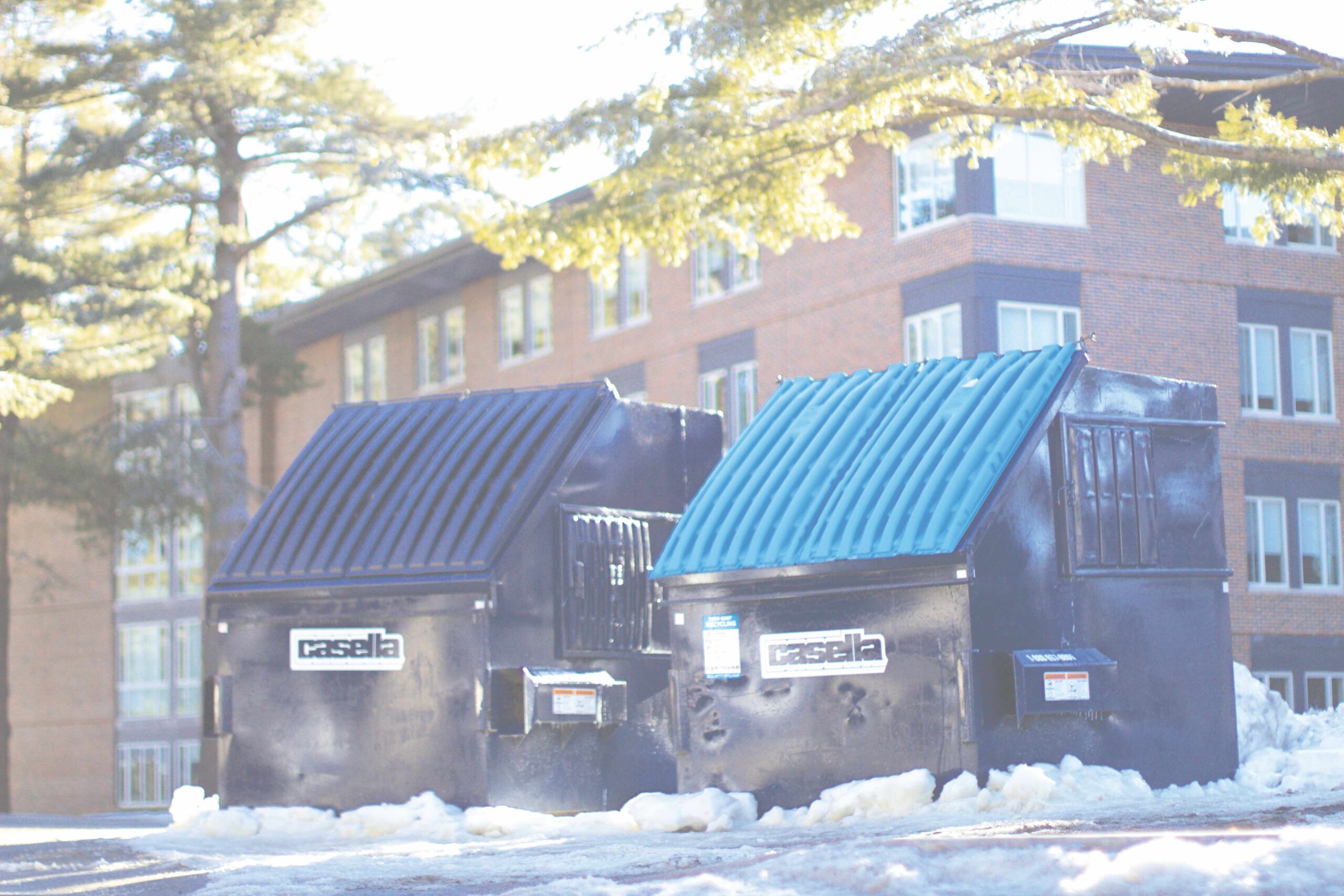Sustainability Office faces new challenges, and offers new solutions, for dining
February 19, 2021
 Ben Mathews
Ben MathewsThe Bowdoin Sustainability Office is building on its work from last semester to promote environmental awareness and sustainable practices in an extraordinary campus environment. COVID-19 guidelines restricting in-person dining and large gatherings have created new challenges for the office in reducing waste, organizing programming and spreading its messaging to the student body.
One of the most dramatic differences to campus life for returning students is the dining experience, with dining halls only offering meals to go in takeout containers. Although necessary for public health reasons, this change has resulted in a significant increase in the amount of packaging waste generated by students eating meals in their residences.
“COVID[-19] guidelines just drove the bus on everything,” said Ken Cardone, interim director of dining services, in a phone interview with the Orient. “We had a look at our menus, and we had to actually rewrite some of the menus to make sure that the items were appropriate for takeout and we had the correct containers available to offer those items.”
Even as Dining Services looks to find ways to incorporate sustainability measures into their new structure, such as by providing reusable silverware and compostable containers, they must also contend with the logistical challenges of maintaining steady supply chains during the pandemic.
“Product availability was difficult, especially during the fall semester when everybody was just gearing up and procedures were changing,” Cardone explained. “We’re still having problems with availability of products, and we were told at the very beginning when we started researching this, ‘be ready to pivot.’”
Keisha Payson, associate director of sustainability, praised Dining’s continued efforts.
“Dining is such a strong sustainability partner on campus,” said Payson in a Zoom interview with the Orient. “They don’t really want to be generating all this waste, but at the same time, they realize it’s sort of a necessary evil of the situation that we’re in—and they’re making the best of the situation.”
Sustainability is working with Dining Services to encourage students to do their part in reducing the impact of this increased waste generation by recycling and composting in bins outside student residence halls. There are currently 43 compost bins outside 18 residence locations on campus, and each is picked up one or two times per week. The Sustainability Office is encouraging students to make use of these bins, although they have changed their messaging after they saw many of the bins overflow last semester.
 Ben Mathews
Ben Mathews“One of the things that we’re trying to get across to students this semester, is that we really hope that they focus more on composting the food waste, and less on the packaging,” Payson explained.
Not only does this reduce costs and make the process more efficient, but focusing on composting food products rather than paper containers also creates a higher-quality compost.
In addition to encouraging students to refine their approach to composting, the Sustainability Office hopes to simplify and clarify their messaging to promote further student engagement.
“There’s so much that’s different and stressful, [and] the idea [that] you need to read the back of every piece of packaging that you get from the dining hall—that just became too much,” Taylor said.
Although the staff in the Sustainability Office is devoting considerable effort to reducing waste created by the new circumstances, they realize that the pandemic has created other challenges for many students, and that this work cannot always be a priority.
“There are so many bigger problems with the pandemic than disposable masks and disposable napkins, so we don’t want to … focus on that when the big picture is a much bigger problem,” Taylor said.
In this spirit, the Sustainability Office continues to expand beyond purely waste-related measures to support broader sustainability concerns in the campus community.
“A lot of the dialogue has shifted to: ‘How do we sustain ourselves during this time?’ so a lot of wellness self-care has been brought to the conversation,” Holden Turner ’21, a student employee in the Sustainability Office, said in an interview with the Orient. “We shifted from talking about ‘How do we help the planet and help natural spaces?’ to, like, ‘OK, how do we help ourselves and in helping people help the environment?’”
Student employees work on a wide range of sustainability projects, including recurring programs like “Free Cycle,” which takes donations of clothes, furniture, toiletries and decorations at the end of each school year and then redistributes them to Goodwill, Midcoast Hunger Prevention Project or back to Bowdoin students at the start of the next year.
“It’s just a different feel to meet students with, ‘Hello, would you like some free upcycled stuff?’ and to have that be the first thing we hear about sustainability,” said Taylor, who is instrumental in organizing the Free Cycle project. “Everybody should be turning off the lights and shutting the windows and being efficient, but it makes it feel more like who we actually are to be offering things to students rather than demanding things from them.”
The Sustainability Office is maintaining this ethos, emphasizing emotional and personal sustainability even as they encourage students to continue to develop their waste reduction and environmental awareness.
“I think sustainability, right now, is really just trying to be the kind of glue that holds many people together,” said Turner. “The more people that we can kind of connect with as an office, the more we’ve succeeded.”

Comments
Before submitting a comment, please review our comment policy. Some key points from the policy: